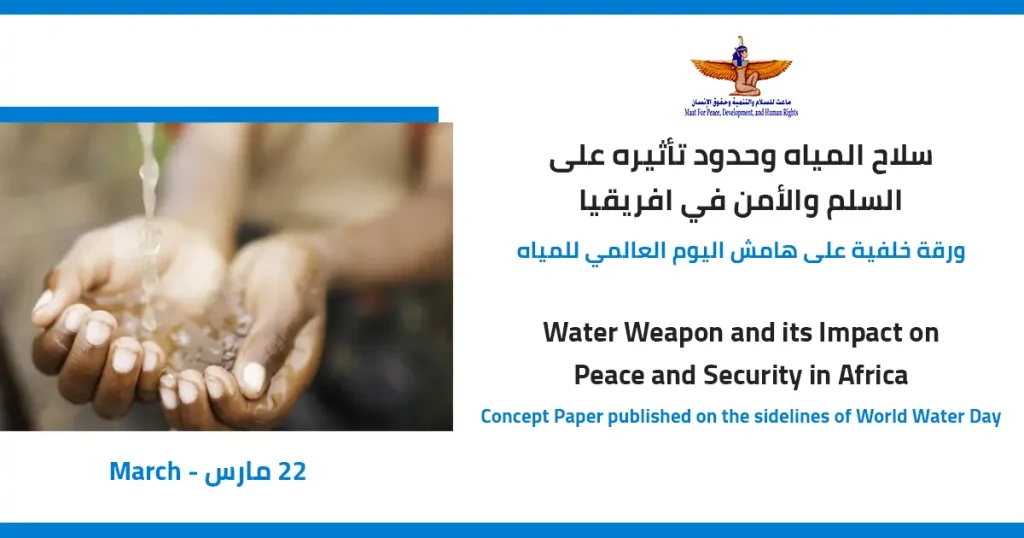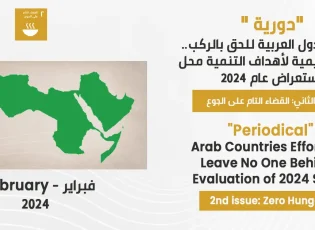Okeil: More attention must be paid to the protection of children's rights in southern Sudan from the effects of armed conflicts
Basant Essam: We call for raising awareness of the repercussions of discrimination and racism and their effects on children in South Africa
Maat for Peace, Development and Human Rights issued two studies on the child rights situation in both South Africa and South Sudan, on the sidelines of the work of the Working Group at its 88th session of the United Nations Committee on the Rights of the Child.
Through the two studies, Maat monitored the situation of child rights in South Africa and South Sudan over the past four years, and focused on the legal and legislative framework as well as the national institutions related to the advancement of children's rights in both countries. In the two reports, Maat touched upon a set of challenges that children face, especially in light of the outbreak of the current global health crisis. Maat concluded its two reports with a set of recommendations that intersected with the recommendations submitted by the pre-session working group to the countries under review.
The first of the two studies covered the grave violations of South Sudanese children since 2013 and the country's devastation by civil wars until now. In this regard, Ayman Okeil, president of Maat for Peace, Development and Human Rights, expressed his deep concern about the grave violations of children's rights due to armed conflicts. The number of child soldiers, between ages 14 and 17, has reached more than 20 thousand child soldiers.
The human rights expert discussed the impact of the armed conflict on the decline of children health care, which made South Sudan one of the countries with the highest death rates for children under the age of five due to medical negligence. In 2020, the rates were estimated by about 94.53 deaths.
For his part, Okeil recommended the government of South Sudan to complete the political roadmap that the country embarked on, and to work hard to confront any differences that may threaten the peace agreement and the principles of power-sharing, with its negative impact on the rights of the child.
 As for the second study which focused on South Africa, a number of difficulties and challenges that face children in South Africa, despite government efforts, were documented. In this context, Basant Essam El Din, a researcher at the African Affairs and Sustainable Development Unit at Maat, added that the laws and legislations in the state of South Africa are vaguely-worded and contain loose terms that imply clear racial discrimination. Children of other nationalities residing there face obstacles in accessing subsidized healthcare because they do not have the required permits and documents. The human rights researcher added that there are also birth registering problems, which lead to further crises in future, such as enrollment in schools, as well as enjoying free health care because children do not have an official document proving their registration.
As for the second study which focused on South Africa, a number of difficulties and challenges that face children in South Africa, despite government efforts, were documented. In this context, Basant Essam El Din, a researcher at the African Affairs and Sustainable Development Unit at Maat, added that the laws and legislations in the state of South Africa are vaguely-worded and contain loose terms that imply clear racial discrimination. Children of other nationalities residing there face obstacles in accessing subsidized healthcare because they do not have the required permits and documents. The human rights researcher added that there are also birth registering problems, which lead to further crises in future, such as enrollment in schools, as well as enjoying free health care because children do not have an official document proving their registration.
On the other hand, "Ms. Essam El Din" reported that South Africa has one of the highest rates of child developmental disabilities for children under the age of five, which is followed by physical disabilities of 27% of children. The researcher recommended national civil society institutions in South Africa to launch media and field campaigns aimed at raising awareness of the catastrophic repercussions of discrimination and racism.
Notably, Africa is among the issues of concern to Maat for Peace, Development and Human rights, being a member of the General Assembly for the Economic, Social & Cultural Council (ECOSOCC) of the Africa Union (AU). Moreover, Maat serves as an Observer in The African Commission on Human and People’s Rights (ACHPR) and as a Northern African Coordinator in the major Non-Governmental Organizations (NGOs) in Africa of the United Nations Department of Economic and Social Affairs (UN DESA).
view the reports via the following links
https://maatpeace.org/ar/?p=32239
https://maatpeace.org/ar/?p=32233











